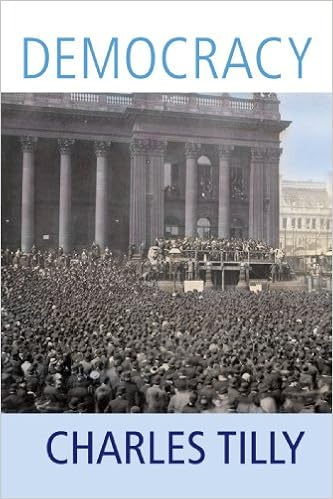This is a selection of key events in the history of democracy. It highlights moments where there was a significant evolution of democratic principles. The extension of democracy includes:
- Weakening power of absolute rulers / absolute monarchs.
- Extending the decision-making process to a wider section of society.
- Giving every member of society a say in the decision-making process.
One definition of democracy was given by Abraham Lincoln
“Government of the people, by the people, for the people”
These events all helped this democratic ideal come closer.
 Athenian democracy
Athenian democracy
Through the reforms of Solon, Cleisthenes and Pericles, Athenian citizens were given a direct say in the running of the legislative body. Many positions were chosen by ‘random lot’ – considered the fairest way of avoiding privilege. Democracy was direct, with citizens voting on decisions directly. Although small-scale and limited to male Athenian citizens, it is considered one of the earliest forms of direct participatory democracy in the ancient world.
 Political writings of Aristotle (384BC – 322BC) Inspired by his tutor Plato (and his teacher Socrates), Aristotle wrote extensively on different forms of government, including democracy. Although Aristotle wasn’t 100% committed to democracy, his writings were very influential and helped to cement the idea of democracy.
Political writings of Aristotle (384BC – 322BC) Inspired by his tutor Plato (and his teacher Socrates), Aristotle wrote extensively on different forms of government, including democracy. Although Aristotle wasn’t 100% committed to democracy, his writings were very influential and helped to cement the idea of democracy.




The English civil war had temporarily removed the monarch in place of parliamentarian rule. When William of Orange came to take the throne, Parliament drafted a bill of rights, constitutionally limiting the power of the king.
 Great Reform acts of 1832-1837
Great Reform acts of 1832-1837
The great reform act abolished ‘rotten boroughs’ very small seats where MPs could buy their seat. It also extended the vote from a small class of propertied males to franchise most male voters over the age of 18.

In 1893, New Zealand became the first country to give women the vote. This significant milestone was a couple of decades before many other Western democracies like UK and US.

This depicts four key figures in the US civil rights movement – W. E. B. Du Bois, Malcolm X, Rosa Parks, and Martin Luther King. The civil rights movement helped deal with issues of segregation and political alienation that many coloured people faced at the time.

The fall of the Berlin Wall was symbolic of the end of one-party rule in Eastern Europe. The Soviet leader Mikhail Gorbachev had initiated reforms which led to greater openness and democracy in the Soviet Union. Unlike his Soviet predecessors, he allowed Eastern countries to follow their independent democratic fate.
Citation: Pettinger, Tejvan. “Key events in the history of democracy“, Oxford, UK. biographyonline.net, Published 01/08/2013. Last updated 12 February 2018.
Democracy by Charles Tilly
- Democracy by Charles Tilly at Amazon
Democracy in America
- Democracy in America at Amazon
Related pages



